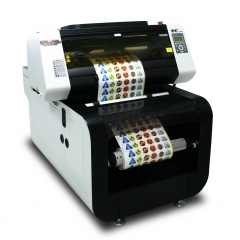One form of alcohol abuse that contributes to kidney disease is binge drinking, usually defined as consuming four or five drinks within two hours. Binge drinking causes a person’s blood alcohol content to rise to dangerous levels, which in turn causes the kidneys to lose their function so much, the term for this is acute kidney injury. Chronic alcohol consumption induces profound injury in several organs that may affect and aggravate the deleterious effect of ethanol on the kidney. Ethanol itself markedly induces the expression of the microsomal ethanol oxidation system (CYP2E1), producing reactive oxygen species as a byproduct.
Alcohol consumption, including vodka and red wine, also reduced serum insulin concentrations and enhanced the insulin sensitivity index 24,25. A moderate amount of alcohol drinking decreases the risk of developing diabetes, showing a U-shaped association 26. As noted above, there is much to learn about alcoholic kidney disease and the complex interplay among multiple organs affected by alcohol consumption.
One possible mechanism is oxidative stress resulting from increased production of reactive oxygen species, which leads to an excessive amount of free radicals, which in turn trigger tissue injury and increase inflammation. In addition, AUD’s effect on other major organs (liver, heart, intestines, and skeletal muscle) appears to promote unfavorable pathological processes that are harmful to the kidneys. Notably, these mechanisms have not yet been validated experimentally in the kidney.
They have been demonstrated to have ROS scavenging, antiplatelet, anticancer, anti-inflammatory, antidiabetic, antibacterial, antiaging, and cardiovascular and renal-protective effects 105–112. Moreover, other bioactivators in red wine, excluding resveratrol, and those in white wine, also have the function of ROS scavenging and renal protection 7,84,113. Sex, age, primary diseases, initial GFR, individual differences, and dietary structure can all influence the results of a study. Some studies found that ethanol has an influence on renal damage, such as apoptosis and epithelial mesenchymal transdifferentiation. Nesreen and Sayed discovered that alcohol consumption significantly increased renal caspase3, caspase8, and caspase9 activity, and ethanol toxicity can increase the ratios of Bax and Bcl-2 in kidney tissues compared to a control group 24,25.
Veozah interactions: Alcohol, medications, and other factors
For most people, simply scaling back drinks to one or two a week is enough to dodge this particular bullet. For many others, especially those who are struggling with alcoholism or who have a history of alcoholism in the family, a complete ban on alcohol might be the safest option. The name is derived from albumin, a protein that is used in building muscle, fighting infection and repairing tissue.
- The characteristics of the study design and other details of these studies are presented in Table 1.
- According to the World Health Organization report in 2016, about 43% of the world’s population over 15 years old reported drinking in the past 12 months1.
- Although moderate alcohol consumption contributes to increased insulin sensitivity 95,96 and delays the progression of diabetes 77,97, the prognosis of such patients differs from non-diabetic but moderate drinking patients with CKD.
- You can also help prevent interactions with Veozah by taking it exactly as your doctor prescribes.
- In addition, many studies have suggested that alcohol consumption can also affect the prognosis of patients with CKD.
Vitamins and Minerals in Chronic Kidney Disease
This is especially likely if your liver is impaired due to alcoholism. The disease can also affect blood flow to the kidneys and cause them to be less effective in filtering blood. Drinking is a complex social activity, and the results of many studies on the effect of alcohol consumption on CKD may be affected by many confounding factors. This makes it difficult for us to obtain reliable evidence to support our conclusions.
Alcohol-Induced Intestinal Damage
Veozah may interact with piperine (black pepper foaming at the mouth drugs extract) supplements. Some people use this herb to manage inflammation and improve thinking ability, among other uses. For examples of CYP1A2 inhibitors, see the “Veozah interactions with other medications” section.
However, clinical research shows the amounts and patterns of alcohol consumption both affect eGFR in patients with CKD 7. Many studies have confirmed that unhealthy diet and lifestyle can cause various diseases, and heavy alcohol consumption is one of the important factors 66. As an influential factor of many chronic diseases, alcohol consumption has been increasingly studied in recent years. Many studies have shown that alcohol consumption is related to cardiovascular disease, urinary protein, and CKD 3,6,16,45,66–69. This review focused on 21 clinical studies of the relationship between alcohol consumption and CKD, including 13 cohort studies and 8 cross-sectional studies.
Diuresis by inhibiting vasopressin release 53 and impairing acid secretion have also been discovered in alcoholics. In addition, hypokalemia, hyponatremia, hypomagnesemia, hypocalcemia, hypophosphatemia, and metabolic acidosis mixed with volume-contracted metabolic alkalosis are common in long-term alcohol consumption. Physically, the kidneys have several enzymes with antioxidant capacities, including superoxide dismutase (SOD), catalase (CAT), and glutathione peroxidase, which can balance various oxidative processes.



